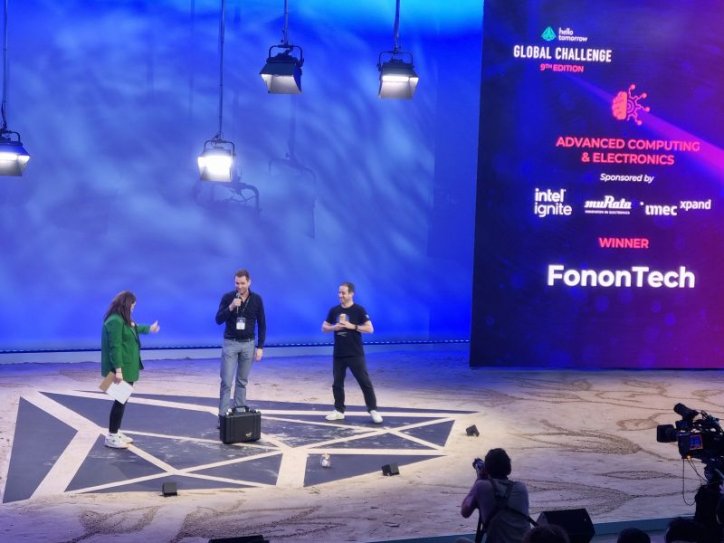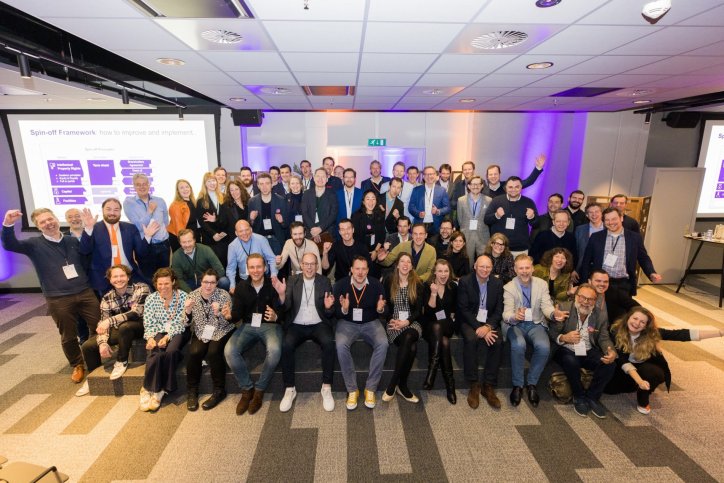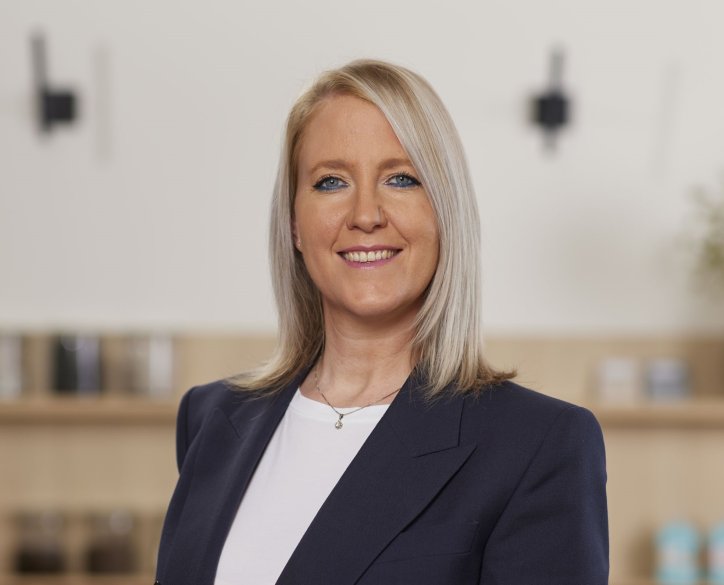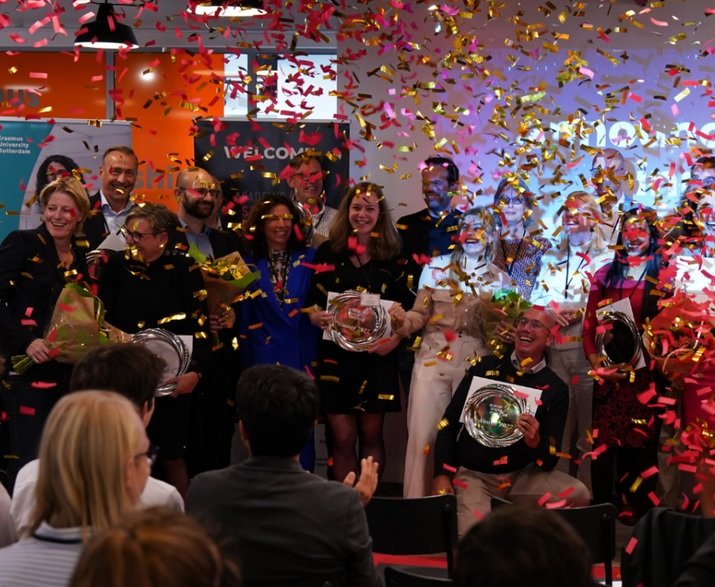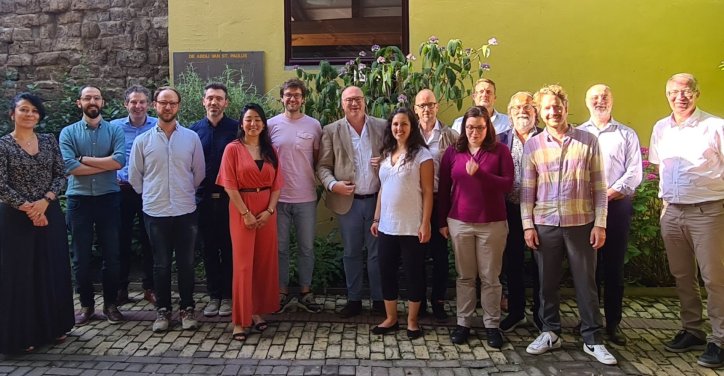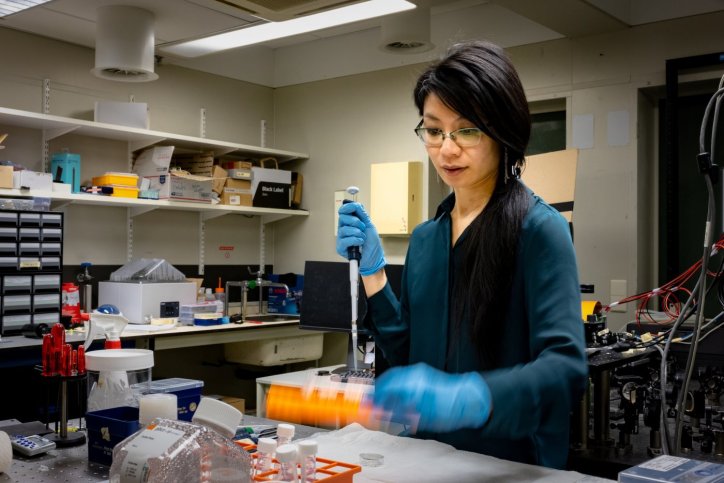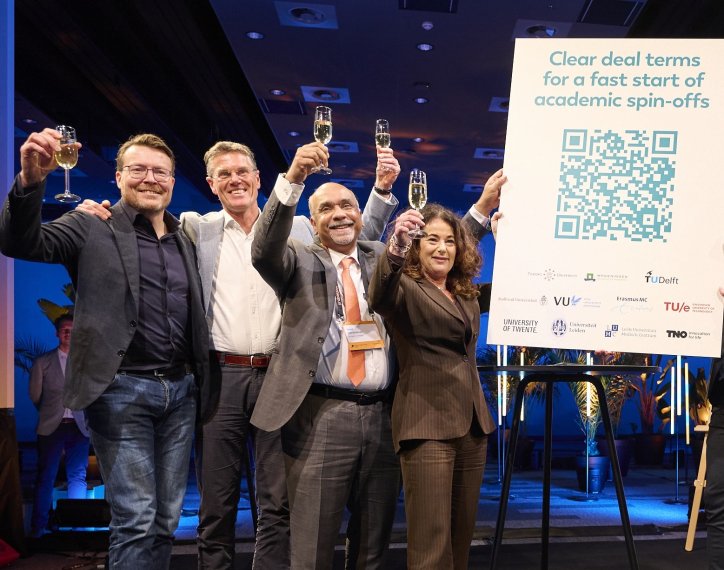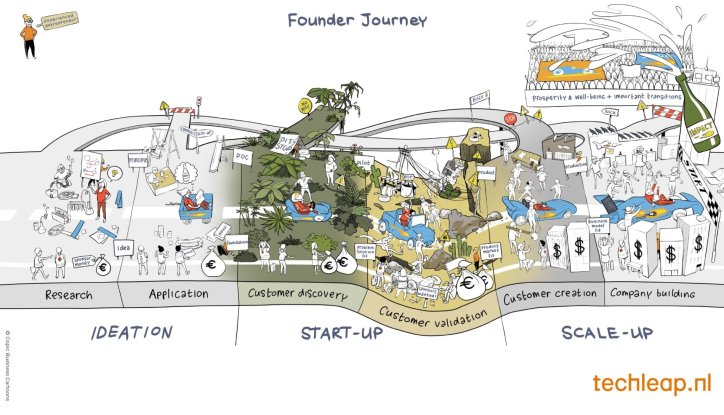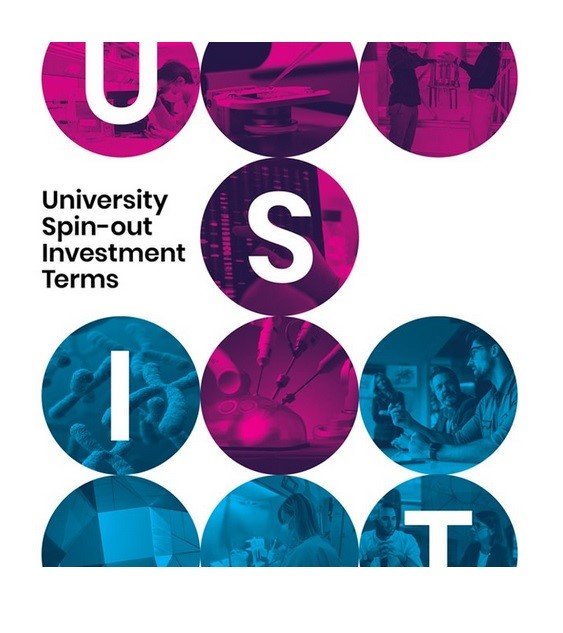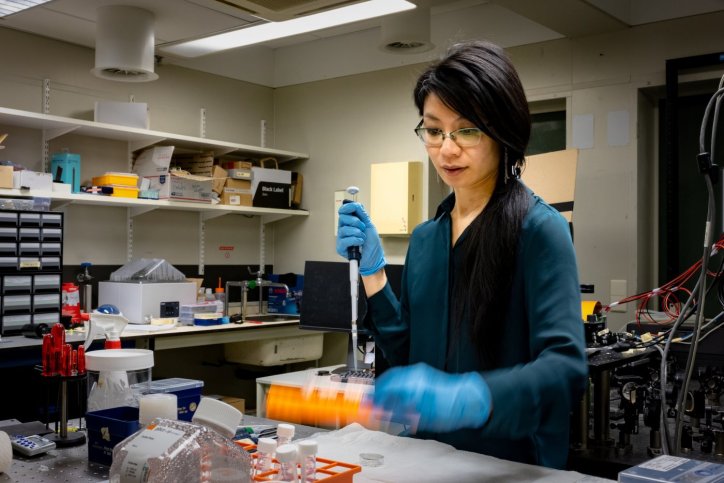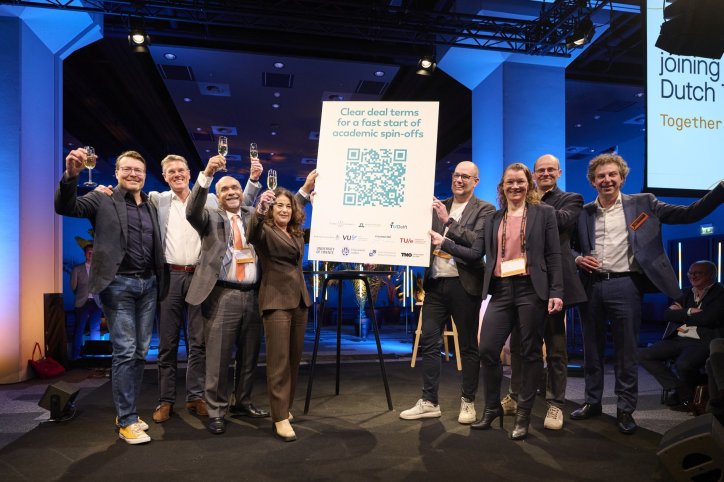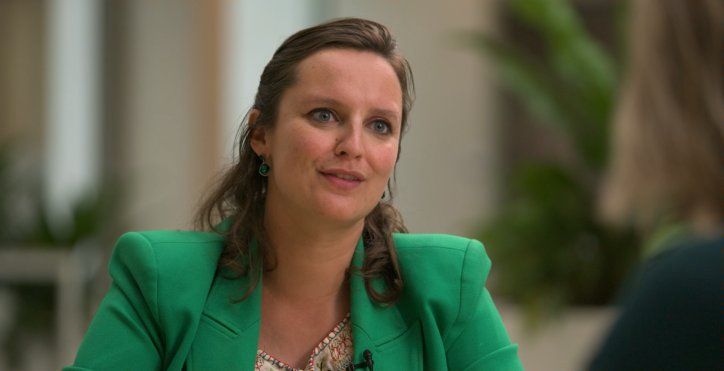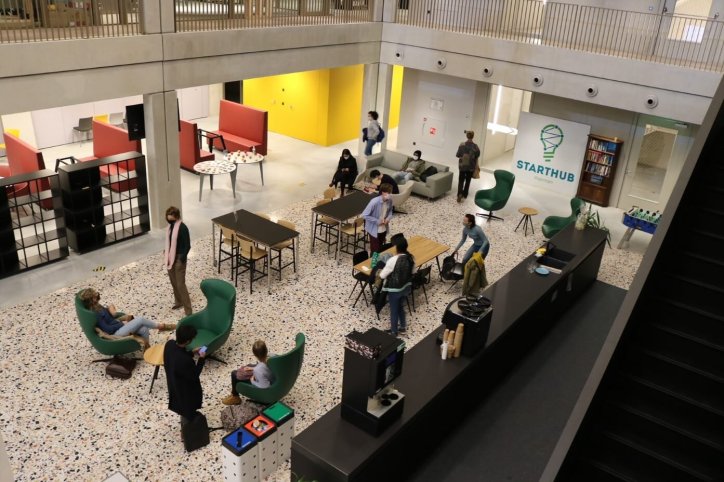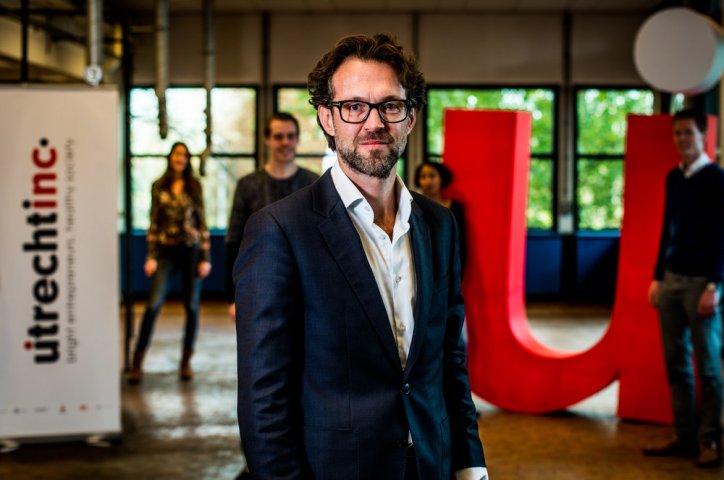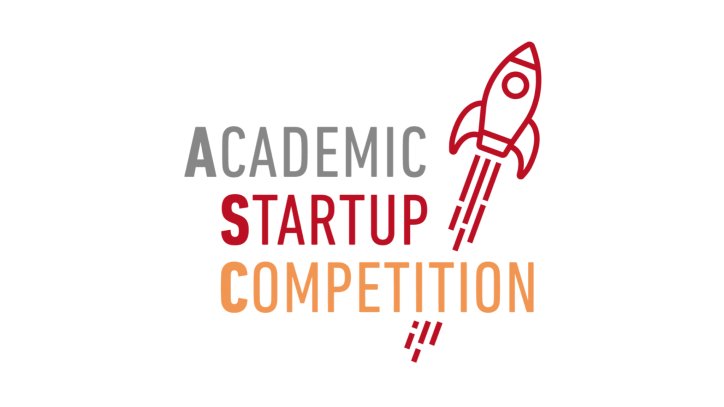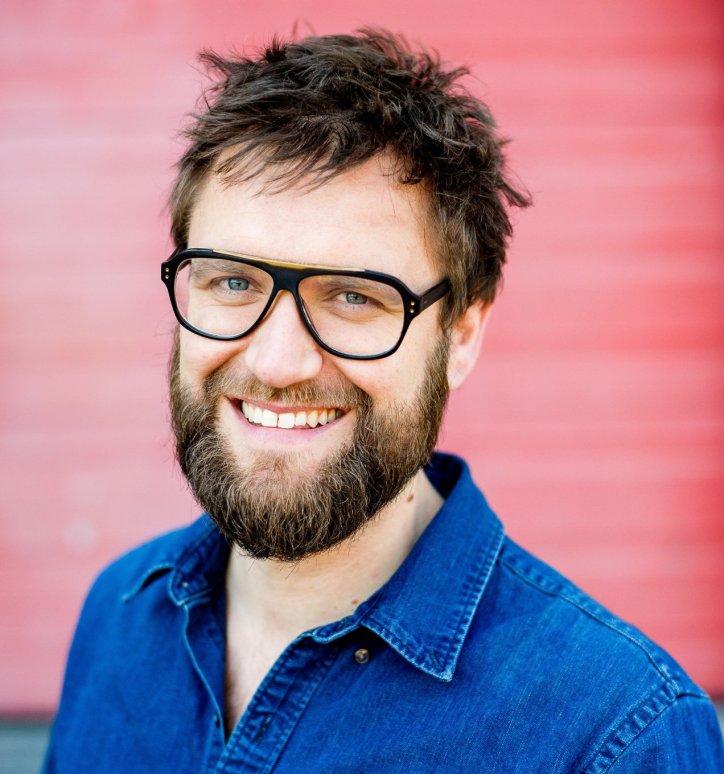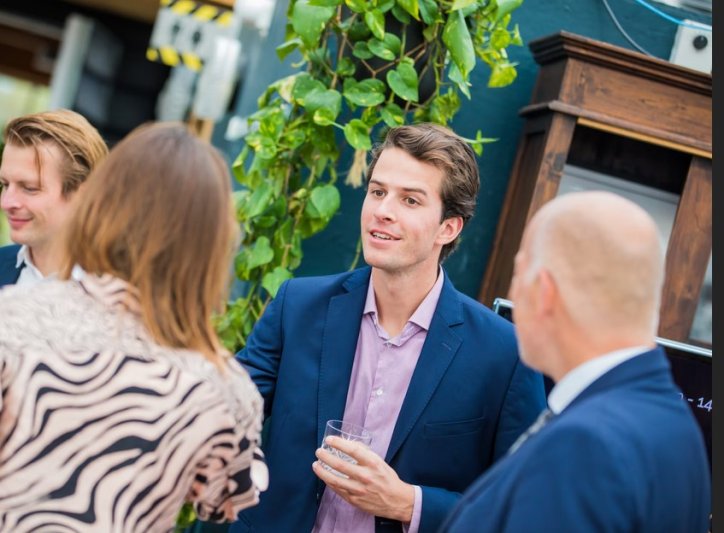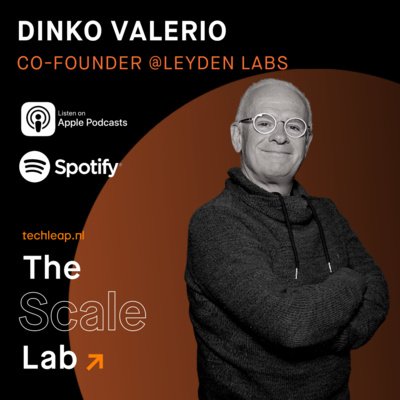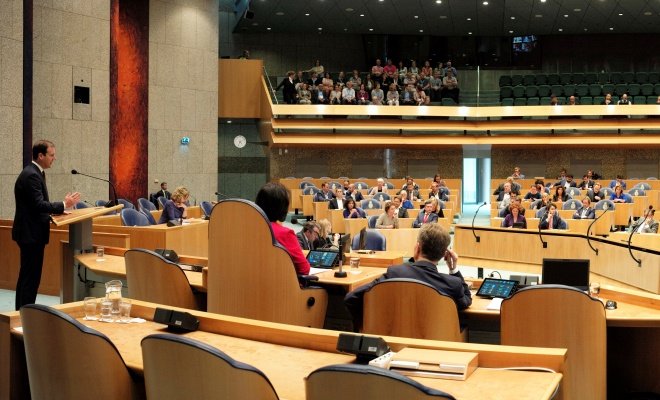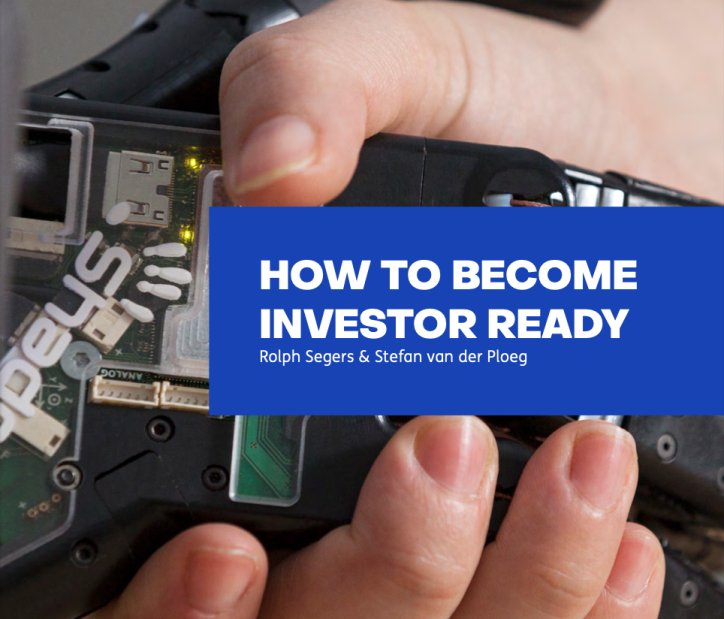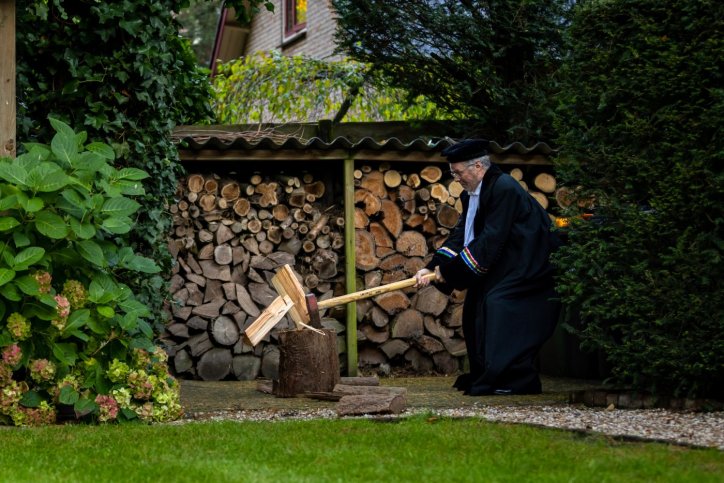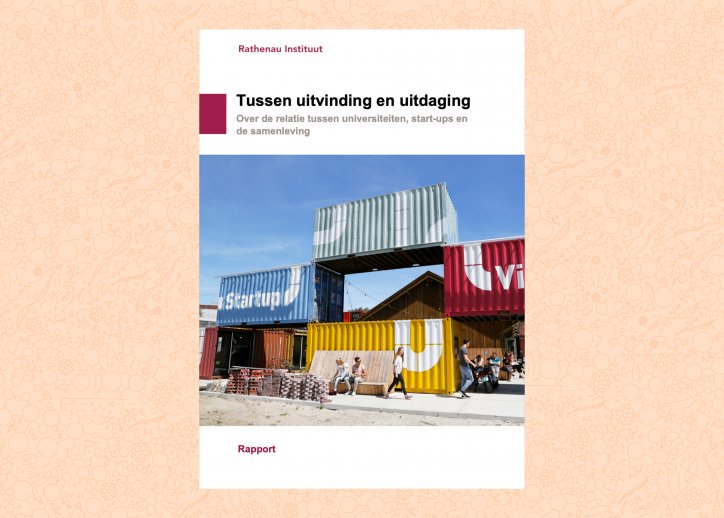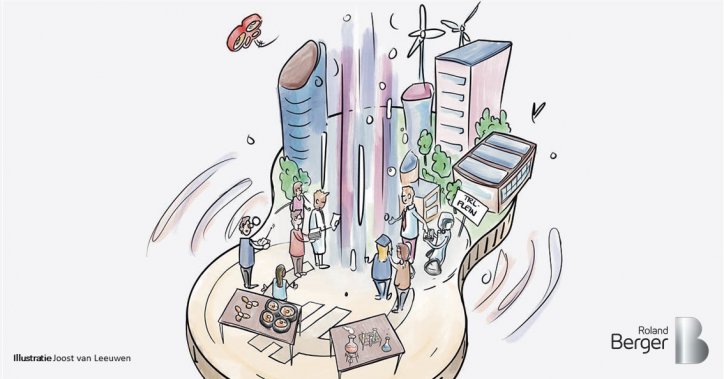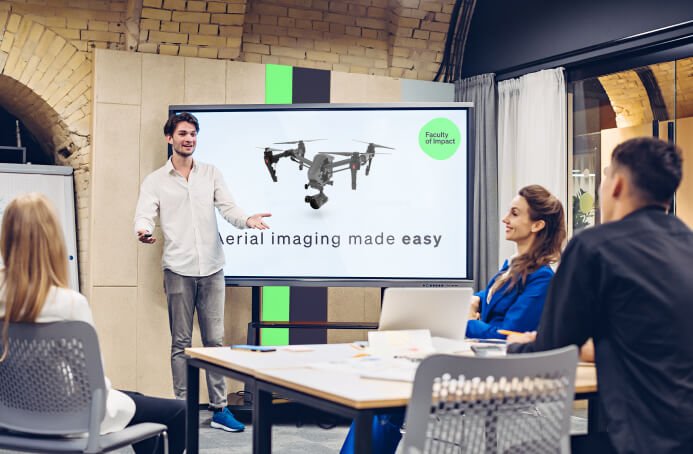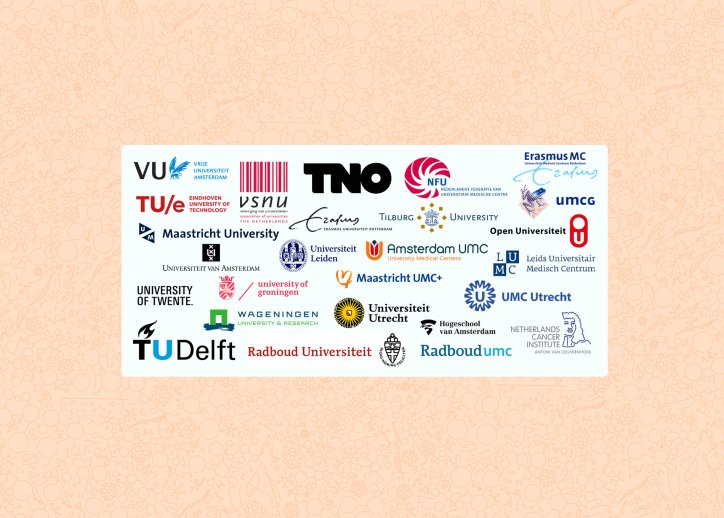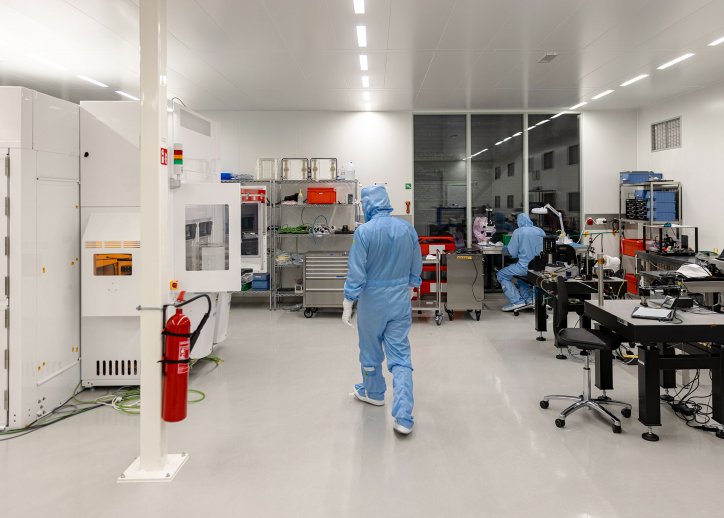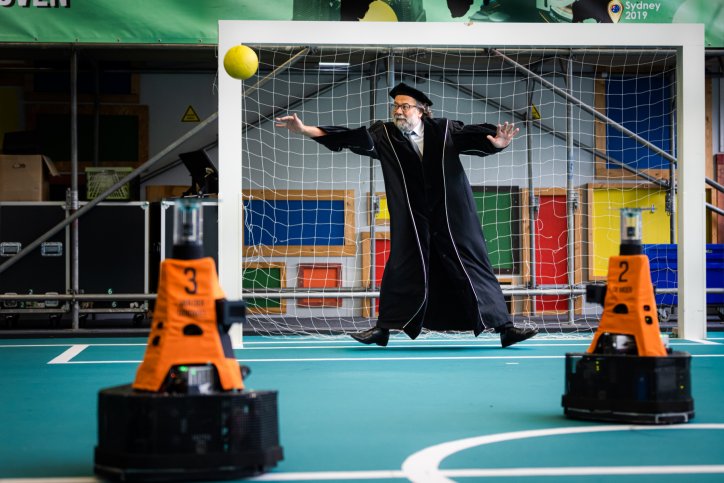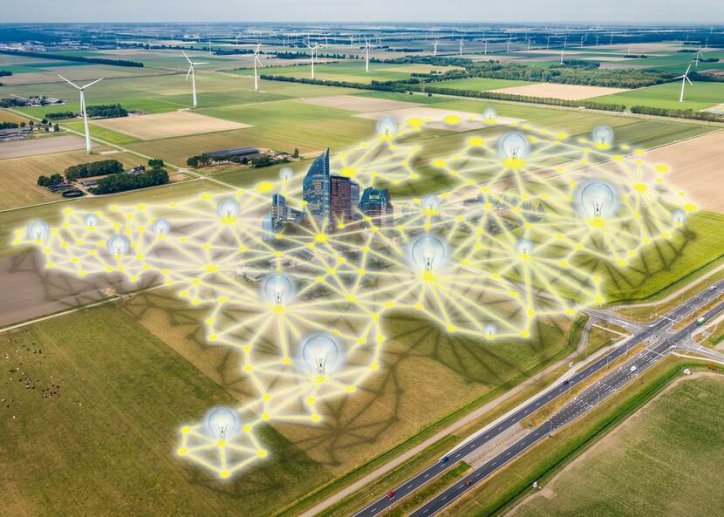Last month, more than 175 ambitious entrepreneurs, investors and partners from the Dutch deep tech ecosystem attended Hello Tomorrow in Paris under the name Discover Dutch Deeptech.
During State of Dutch Tech 2024, a new model shareholder agreement was launched which can be used by Dutch spin-offs in which universities, University Medical Centers (UMCs) or other knowledge institutions participate as shareholders.
Last month, EZK, TNO and RaboResearch released publications on the Dutch technology and investment climate.
Liduina Hammer is fund engineer at Polestar Capital. Before then, she was head of investment at InnovationQuarter. We asked her what catches her eye about the Science to Impact climate in the Netherlands.
The State of European Tech 2023 is out. The report contains interesting insights on the deep tech climate of the Netherlands and the rest of Europe in 2023.
Recently, several organisations and people from the knowledge field have expressed concerns about the limited focus on knowledge and innovation in political programmes. Read the overview (in Dutch)
Wanted: ambitious academic startups. Deadline application: 10-11-2023
Entrepreneurial scientists launch 14 statements for more impact with academic startups
With new dealterms, universities and spin-offs close 20 deals in half a year
Departure Mirjam van Praag and Pieter Duisenberg - two people of major significance for the academic startup ecosystemn Pieter Duisenberg - twee personen van grote betekenis voor het academisch startupecosysteem
In the third round of the National Growth Fund (NGF), the government has allocated €417 million for the ''Delta Plan Valorisatie''.
To give more clarity on the different phases a Deeptech Founder goes through while building his business, Techleap.nl created a short movie to highlight each step.
Under the stewardship of TenU, the USIT Guide has been launched last April 24. The guide offers University Spin-out Investment Terms
Last Thursday, 16 March 2022, Universities of The Netherlands (UNL) and Techleap.nl organised the webinar 'Spin-off Deal Term principles'.
Today, Universities of The Netherlands (UNL) has presented transparent principles for university spin-offs on the State of Dutch Tech 2023.
Varsha Thakoersing is one of the ten winners of the Academic Startup Competition who were rewarded with a trip to the United States. The CEO of the medtech startup IMcoMET has just got back. What did Varsha notice and what can we learn from her experiences?
Entrepreneur Linda Dijkshoorn, CEO and founder of EV Biotech, talks with journalist Desiree Hoving about her motivation and sources of inspiration. How does she make an impact?
Minister Adriaansens, Ministry of Economic Affairs and Climate Policy, announces a strategic agenda to renew the entrepreneurial climate in the Netherlands, with ample attention for innovation and knowledge transfer.
Jorg Kop is Managing Director of UtrechtInc. How does he - from his role as incubator lead - support more impact from science? And what are the opportunities?
In ten lessons, eight experienced professors of social sciences and humanities give tools to fellow scientists wishing to make impact with their research.
The finalists of the Academic Startup Competition have been announced. Young companies that are busy translating science into impactful innovations.
Entrepreneurial researchers can be found in the social sciences as well. And Levi van Dam is one of them. How does Van Dam create impact with science, and what is his opinion about the steps that need to be taken for a better valorisation practice?
Are you developing a complex healthtech technology or a deeptech solution you'd like to bring to the healthcare market? Feel free to join the session from Techleap.nl's Pole Position programme on 11 July 2022 in Utrecht.
In this episode of the The Scale Lab from Techleap.nl, Dinko Valerio talks about his experiences as a researcher, entrepreneur, investor and mentor.
Spinout.fyi is a growing effort to crowdsource and openly publish spinout deal terms across every university. Spinout.fyi seeks to shed light on deal terms to catalyse a re-write of the spinout playbook in favor of future founders.
Society can only genuinely benefit from startups if these can use the knowledge developed by Dutch knowledge institutions. This could be in the form of intellectual property or through collaboration between researchers and entrepreneurs.
In recent years, the Dutch House of Representatives has put forward several motions requesting the government to present a vision about bringing innovation in the Netherlands to maturity. The government has pledged to inform the Dutch House of Representatives about this before the summer of 2022.
Authors Rolph Segers and Stefan van der Ploeg, who both work at TNO Tech Transfer, detail all of the steps required to write a sound business plan that investors can be approached with.
Can science and entrepreneurship be combined? In recent weeks, various articles about this have appeared in the Dutch media, for example, from Reineke Timmermans (VNO-NCW), Ineke Sluiter (KNAW) and entrepreneurial scientist Hans Clevers.
Consultancy firm KplusV investigated which public and semi-public funding instruments are available in the early phases of academic startups. How does this capital market actually work in practice?
Opportunities abound to make better use of knowledge and innovation for major societal challenges, such as climate change, the future of healthcare or a fair data economy. That is apparent from research carried out by the Rathenau Instituut.
Since 2005, valorisation is the relatively young, third core task of Dutch universities in addition to education and research. The aim is to make all talent, knowledge, networks and facilities in these knowledge institutions of value to society.
The Faculty of Impact offers young scientists support and coaching in their ambition to increase the impact of their research, e.g. by starting their own company. The call for the first round - themed energy transition and sustainability - is now open.
This is the ambition of the Dutch universities, university medical centers and TNO. Together, the knowledge institutes are launching a plan to strengthen the national innovation ecosystem with the aim of being among the best in the world by 2030.
The (AWTI) advises several targeted measures, which will bring researchers and entrepreneurs together more often and enable them to collaborate more easily. The different needs of entrepreneurs should be taken into account more, especially the needs of SMEs.
How can our society benefit more from the knowledge developed at Dutch knowledge institutions? How do you convert knowledge into innovations? We posed these questions to researchers who are actively engaged in introducing new discoveries to the market.
Central government and the regions have set up extensive collaborations for regional innovation, and much has been achieved already. According to the AWTI report, the parties concerned must now jointly ensure that innovation in the regions really takes off.
